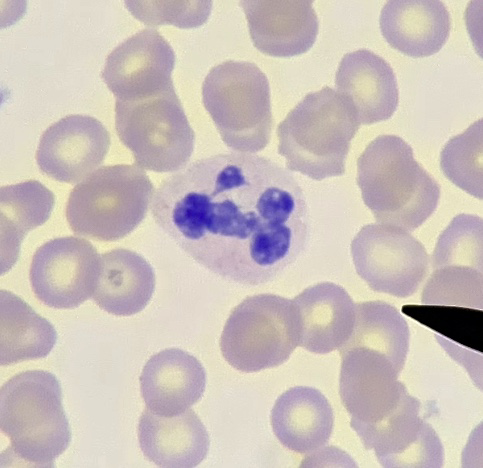-
Posts
173 -
Joined
-
Last visited
Reputation
417 ExcellentRecent Profile Visitors
The recent visitors block is disabled and is not being shown to other users.
-
Oh and post surgery there might be a role for immunotherapy (Checkmate 577 trial). Disclaimer: I’m not a GI oncologist but watch a lot of TV doctor shows
-
sorry to hear about this. I assume this is adenocarcinoma of the GE junction. I’m Assuming you have only locally advanced disease and hopefully not distant disease. At MD Anderson, for something along those lines, you’d probably get concurrent chemo (likely FOLFOX) and radiation (likely protons, although I have no idea how they get insurance to agree to pay for that). Assuming a good response on follow up PET scan, you’d then look at potentially surgery (esophagectomy). But I’m just some dope who slept at Holiday Inn last night. I mostly know about blood stuff.
-

COVID-19 2nd wave - Texas only - Stats and such
Heme Doc replied to justhookit's topic in Daily Texan
At least you guys don’t have monkeypox (yet)! -
I just found out there’s no peach ice cream sandwiches this year due to supply chain issues….
-
I’ll be there Tuesday, Wednesday, and Thursday. Forecast sucks for tomorrow. I’ll take lots of pictures with my phone for you guys.
-
Maybe the idea of “original antigenic sin”? But I doubt he’s smart enough for that. I don’t have time to explain it to you peons. Google it if you like. But it’s been shown to not be a concern with SARS-CoV-2
-
I agree his take there on the transplant issue is pretty bad.
-
I agree about it being a gray area. I don’t pretend to have all the right answers. I hope you don’t feel like I’m throwing a tantrum. Just trying to have respectful dialogue. I’d lean more towards the carrot/stick approach above. Companies can give reduced insurance rates or other perks for employees to get vaccinated. I’m fine with healthcare workers being mandated to get the vaccine. I do wish there were carve outs for exceptions for those previously infected (although I’d still advise them to get vaccinated).
-
Physicians are good at taking multiple choice standardized tests. It’s how many of us think. “Here’s a problem. Pick the one best solution”. COVID, unfortunately, is not like that. COVID reminds me of a test question in medical school… After the test, friends and classmates all gathered to discuss how we thought we did. “What did you answer on question 7?” Everyone had a different answer. Each person convinced their answer was correct… But it turns out they screwed up the test and left off the correct answer choice. We ALL answered wrong but were convinced we were right. There’s some deeper meaning there, probably.
-
Yes, it probably would. In a case where vaccine confers sterilizing immunity, much less risk of transmitting to others and harming them. GREAT question about new vaccine development. I don’t know what the deal is.
-
VERY well said. Full agreement here
-
I agree with you that the unvaccinated disproportionately utilize resources and this results in indirect harm to others. But I disagree that mandates are an ethical solution to the problem. We do not mandate other behaviors which disproportionately utilize healthcare resources (weight loss for obesity, smoking/alcohol cessation, flu vaccinations, etc).
-
Thank you for the thoughtful reply. I wasn’t relying on the article for my feelings on usefulness of mandates. I just used it as a jumping off point for discussion around certain aspects of vaccine mandates. I stand by my previous post that mandates of current vaccine formulations against the current circulating variant (and likely future variants) have little value. To me, the ethical case for vaccine mandates requires that vaccines significantly reduce harm to others. I think we both agree that current vaccines do a relatively poor job at stopping transmission to others with Omicron and also with waning immunity. I agree that vaccines do slow transmission some (especially if boosted), but not enough to mandate them (in my opinion). Preventing indirect harm to others is another way mandates might be beneficial, by improving hospital capacity. I have previously laid out some problems with this reasoning. I think we would both agree that the main benefits of vaccination are primarily protection for the individual, particularly against severe outcomes. We do compel other activities for individual safety (seatbelts being an example you mentioned). But there are important differences between seatbelts and vaccinations. Further, we do not compel other interventions which would be of benefit to the individual or society (weight loss, restrictions on food/alcohol, or yearly flu vaccines to name a few). The primary goal of a mandate with current circumstances, to me, is to compel as many people as possible to get vaccinated. I fear we have reached the end of that usefulness. If you ain’t been vaxxed yet, you’re probably not going to. I can’t speak as much to the legalities of mandates. I know there’s been stuff in the Supreme Court, but I’m no lawyer. In an unrelated note — on the topic of the power of these vaccines…my wife went in today for her very last cycle of pretty potent immune suppressive adjuvant chemo. She has been on chemo since late Sep and got her COVID booster just before starting chemo. SARS Ab level is STILL off the charts > 2500 as of last week. Still not had COVID throughout the surge and being on chemo the whole time.
-
I’ll drink to that!
-
It sucks to have so many people still dying. Omicron is infecting almost everyone who hasn’t been vaxxed/boosted or previously infected. And the unvaccinated are the ones dying, almost exclusively. So I think you’ve got a lot of people who are vaccinated saying “fuck those folks who are dying, they could have protected themselves and prevented this, but they didn’t. Why should I have to limit my activities to protect those assholes who wouldn’t protect themselves”?
Football ... Basketball ... Baseball ... Other Sports ... Futbol ... 🤫995🤫 ... Gambling ... Movies & TV ... Music ... Hobbies ... Lulz ... Food & Travel ... Daily Texan ... Business and Markets ... Cloak Room ... Help ... For Sale ... Board Discussion ... Subscribe!... Donate!... COOKIE MONSTER!




